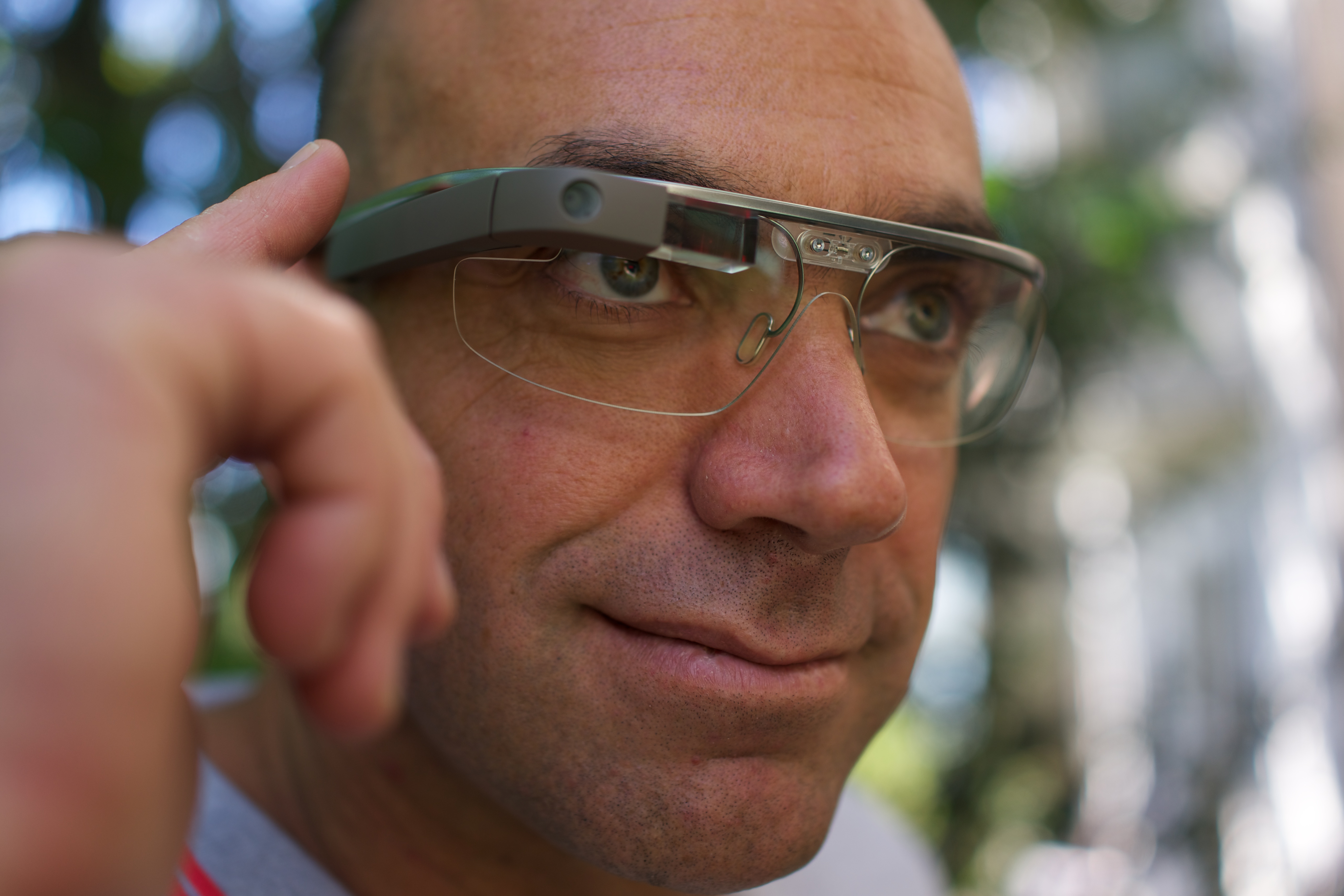(From Wikipedia)
The Weizmann Institute of Science
Faculty of Mathematics and Computer Science
Vision and Robotics Seminar
Lecture Hall, Room 1, Ziskind Building
on Thursday, April 3, 2014
12:00 - 13:00
Sam Hasinoff
Google
will speak on
Google Glass and the (Wearable) Future of Photography
Fast Local Laplacian Filters
Abstract:
First, I'll present a reprise of my IMVC 2014 talk, "Google Glass and the
(Wearable) Future of Photography". I'll give a high-level overview and demo of
Glass, present some key design decisions, describe some of the technology
driving photography on Glass, and discuss what makes head-mounted cameras
special and uniquely suitable for photography. Next, I'll present our
follow-up work on pyramid-based image processing, "Fast Local Laplacian
Filters: Theory and Applications", recently accepted in TOG and to be presented
at SIGGRAPH 2014. We formally analyze the Local Laplacian Filters, relate them
to existing filters, speed them up by 50x (making them practical in more
settings), and show how to use them for high-quality photographic style
transfer.
BIO: Sam Hasinoff is a software engineer at Google. Before joining Google in
August 2011, he was an Research Assistant Professor at the Toyota Technological
Institute at Chicago (TTIC), a philanthropically endowed academic institute on
the campus of the University of Chicago. From 2008-2010, he was a postdoctoral
fellow at the Massachusetts Institute of Technology, supported in part by the
National Sciences and Engineering Research Council of Canada. He received the
BSc degree in computer science from the University of British Columbia in 2000,
and the MSc and PhD degrees in computer science from the University of Toronto
in 2002 and 2008, respectively. In 2006, he received an honorable mention for
the Longuet-Higgins Best Paper Award at the European Conference on Computer
Vision. He is the recipient of the Alain Fournier Award for the top Canadian
dissertation in computer graphics in 2008.
Faculty of Mathematics and Computer Science
Vision and Robotics Seminar
Lecture Hall, Room 1, Ziskind Building
on Thursday, April 3, 2014
12:00 - 13:00
Sam Hasinoff
will speak on
Google Glass and the (Wearable) Future of Photography
Fast Local Laplacian Filters
Abstract:
First, I'll present a reprise of my IMVC 2014 talk, "Google Glass and the
(Wearable) Future of Photography". I'll give a high-level overview and demo of
Glass, present some key design decisions, describe some of the technology
driving photography on Glass, and discuss what makes head-mounted cameras
special and uniquely suitable for photography. Next, I'll present our
follow-up work on pyramid-based image processing, "Fast Local Laplacian
Filters: Theory and Applications", recently accepted in TOG and to be presented
at SIGGRAPH 2014. We formally analyze the Local Laplacian Filters, relate them
to existing filters, speed them up by 50x (making them practical in more
settings), and show how to use them for high-quality photographic style
transfer.
BIO: Sam Hasinoff is a software engineer at Google. Before joining Google in
August 2011, he was an Research Assistant Professor at the Toyota Technological
Institute at Chicago (TTIC), a philanthropically endowed academic institute on
the campus of the University of Chicago. From 2008-2010, he was a postdoctoral
fellow at the Massachusetts Institute of Technology, supported in part by the
National Sciences and Engineering Research Council of Canada. He received the
BSc degree in computer science from the University of British Columbia in 2000,
and the MSc and PhD degrees in computer science from the University of Toronto
in 2002 and 2008, respectively. In 2006, he received an honorable mention for
the Longuet-Higgins Best Paper Award at the European Conference on Computer
Vision. He is the recipient of the Alain Fournier Award for the top Canadian
dissertation in computer graphics in 2008.

%20(3).jpg)

